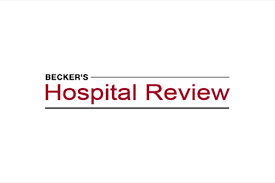Hospital masking rules are beginning to differ state to state
Editor's Note
Amid reports of rising rates of COVID-19 infection in more than 30 states, some high-traffic, high-contact industries such as air travel are starting to wean off firm masking rules. According to Becker’s Hospital Review April 19, the largest US airlines “dropped mask requirements for domestic flights” starting on April 18, and some hospitals are starting to follow suit.
Here are two examples of hospital facilities starting to relax masking rules:
- Houston Methodist Hospital, a 907-bed hospital, no longer requires masks in some public spaces including reception, administrative areas, hallways, and cafeterias. Houston Methodist’s director of system infection prevention and control said it was time “to ease some of that burden on [staff] and allow them some breathing space,” noted Becker’s.
- UnityPoint Health, a health system in Des Moines, Iowa, indicated that some of its hospitals are “moving from universal to relaxed masking the week of April 18,” with masks being optional for “most patients, visitors, and fully vaccinated UnityPoint Health team members.” Masks are still required when performing direct patient care.
Other hospitals and health systems, however, are remaining firm with their mask mandates regardless of state and federal guidance:
- Hartford HealthCare, Yale New Haven Health, and Trinity Health of New England, all based in Connecticut, will all continue to require masks in clinical settings despite the state’s mask-wearing order having expired on April 15.
- Hospitals in Cleveland are also keeping mask requirements despite new mask-wearing guidance.
- Other examples of facilities continuing to enforce mask wearing for all patients, visitors, and employees include the Mayo Clinic, University of Pittsburgh Medical Center, and Kaiser Permanente.
The Centers for Disease Control and Prevention still says “it is generally safest to implement universal masking for everyone in a healthcare setting,” with the caveat that “allowances could be considered for healthcare professionals who are up to date with all recommended COVID-19 vaccination doses in facilities in counties with low to moderate community transmission,” Becker’s reported.
Read More >>

 Free Daily News
Free Daily News